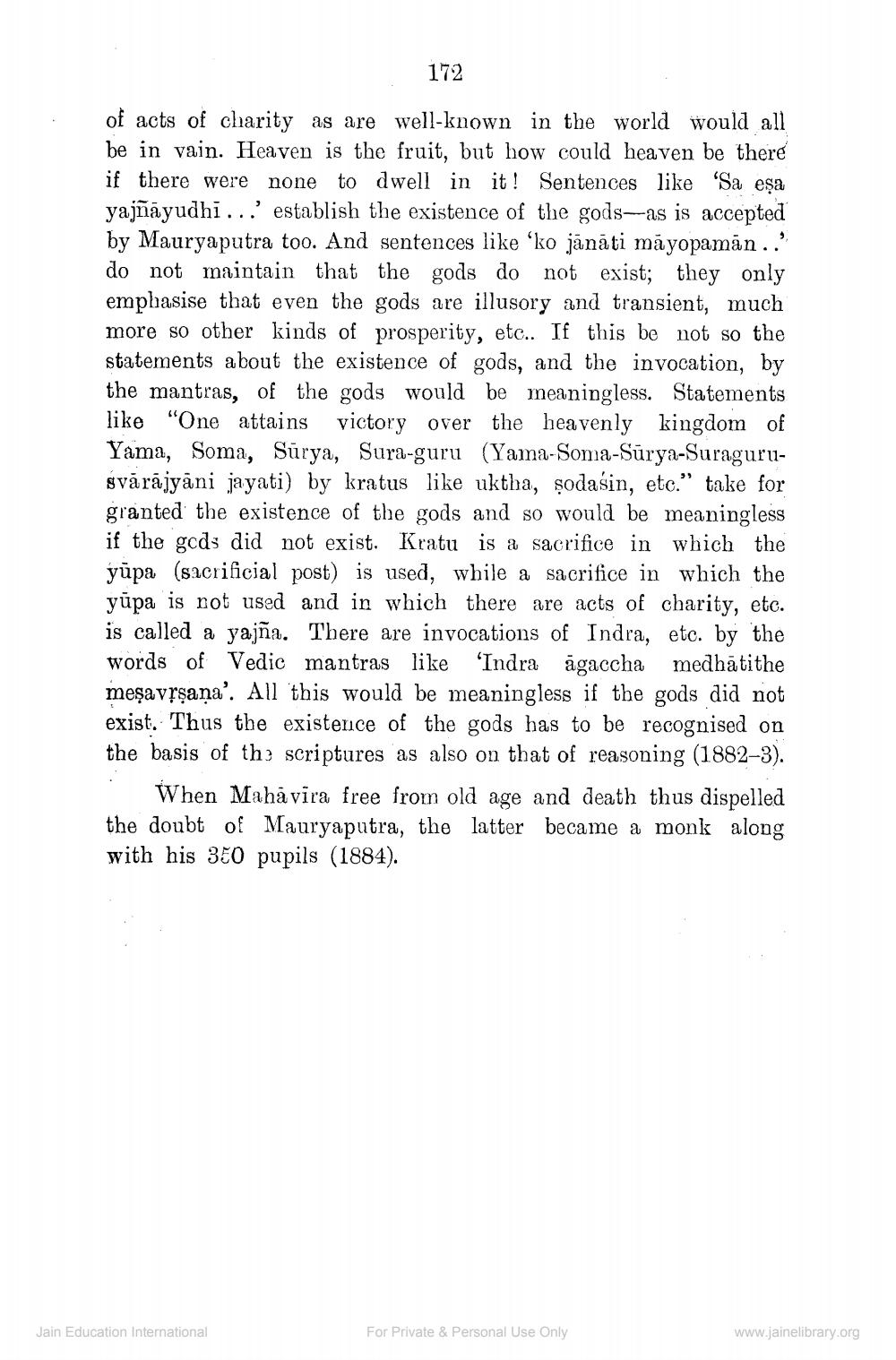________________
172
of acts of charity as are well-known in the world would all be in vain. Heaven is the fruit, but how could heaven be there if there were none to dwell in it! Sentences like 'Sa eșa yajñāyudhi... establish the existence of the gods--as is accepted by Mauryaputra too. And sentences like 'ko jānāti māyopamān.. do not maintain that the gods do not exist; they only emphasise that even the gods are illusory and transient, much more so other kinds of prosperity, etc.. If this be not so the statements about the existence of gods, and the invocation, by the mantras, of the gods would be meaningless. Statements like "One attains victory over the heavenly kingdom of Yama, Soma, Sürya, Sura-guru (Yama-Soma-Sūrya-Suragurusvā rājyāni jayati) by kratus like uktha, sodasin, etc." take for granted the existence of the gods and so would be meaningless if the gods did not exist. Kratu is a sacrifice in which the yūpa (sacrificial post) is used, while a sacrifice in which the yūpa is not used and in which there are acts of charity, etc. is called a yajña. There are invocations of Indra, etc. by the words of Vedic mantras like 'Indra ägaccha medhātithe meşavịşana'. All this would be meaningless if the gods did not exist. Thus the existence of the gods has to be recognised on the basis of th3 scriptures as also on that of reasoning (1882-3).
When Mahā vira free from old age and death thus dispelled the doubt of Mauryaputra, the latter became a monk along with his 350 pupils (1884).
Jain Education International
For Private & Personal Use Only
www.jainelibrary.org




